E-ffiliates Retreat 2021
speakers
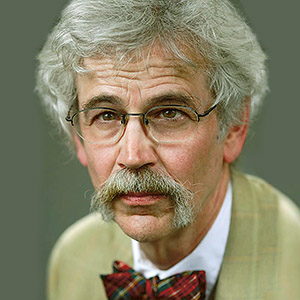
Art Cullen
Editor, Storm Lake Times, Storm Lake, Iowa
Art Cullen is editor and publisher of The Storm Lake Times in northwest Iowa, where he won the Pulitzer Prize for editorial writing on agriculture and the environment. He also has been a contributor to the Washington Post, The New York Times and the Guardian U.S. with opinion essays on politics, immigration, climate change, and agricultural resilience. He is the author of the book, “Storm Lake: Change, Resilience, and Hope in America’s Heartland.”
Cullen helped his brother, John, launch Storm Lake Times in their hometown in 1990. Art works with his wife, Dolores, who is a feature writer and photographer, and son Tom, a reporter. He worked as a reporter and editor at newspapers in Algona, Ames, and Mason City, Iowa, before returning home to Storm Lake.
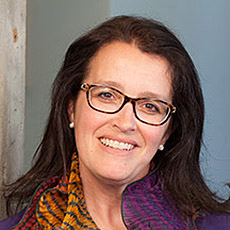
Kelly Sims Gallagher
Academic Dean, The Fletcher School; Professor of Energy and Environmental Policy; Director, Climate Policy Lab; Co-Director, Center of International Environment and Resource Policy, Tufts University
Kelly Sims Gallagher is an academic dean and professor of energy and environmental policy at The Fletcher School, Tufts University. She directs the Climate Policy Lab and the Center for International Environment and Resource Policy at Fletcher. She served in the second term of the Obama administration as a senior policy advisor in the White House Office of Science and Technology Policy, and as senior China advisor in the Office of the Special Envoy for Climate Change at the U.S. State Department.
Gallagher is a member of the board of the Belfer Center for Science and International Affairs at Harvard University, serves on the board on energy and environmental systems of the National Academies of Science, Engineering, and Medicine, and also serves on the board of Energy Foundation China. She is a member of the Council on Foreign Relations.
Broadly, she focuses on energy innovation and climate policy. She specializes in how policy spurs the development and deployment of cleaner and more efficient energy technologies, domestically and internationally. She is the author of “Titans of the Climate” (The MIT Press 2018), “The Global Diffusion of Clean Energy Technologies: Lessons from China” (MIT Press 2014), “China Shifts Gears: Automakers, Oil, Pollution, and Development (The MIT Press 2006)”, and dozens of other articles and book chapters.
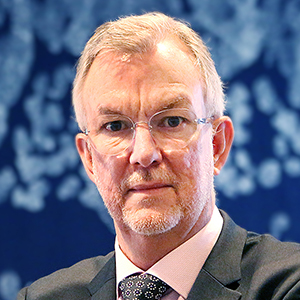
Chris Greig
Theodora D. ’78 and William H. Walton III ’74 Senior Research Scientist at the Andlinger Center for Energy and the Environment, Princeton University
Greig joined Princeton in 2020 as a member of the Energy Systems Analysis Group at the Andlinger Center. Greig is a principal investigator of Princeton’s Net-Zero America (NZA) study, which identifies five technological pathways to achieve net-zero emissions in the U.S. by 2050, and is contributing to an NZA-inspired studies for Australia and Asia. Greig was director of the Dow Centre for Sustainable Engineering Innovation at The University of Queensland (UQ) in Australia and the founding director of the UQ Energy Initiative.
During a 25-year career in industry, Greig held executive roles in the construction and energy resources sectors, including as CEO of ZeroGen, a large-scale carbon capture and storage (CCS) project. Greig also served as chairman of the Energy Policy Institute of Australia and deputy chairman of Gladstone Ports Corporation. His main research interests lie in energy transitions, economics and policy, mega-project implementation and CCS. Greig has a Ph.D. in Chemical engineering and is a fellow of the Australian academy of technology and engineering (ATSE).

David Hawkins
Director, Climate Policy, Climate and Clean Energy Program, Natural Resources Defense Council (NRDC)
David Hawkins joined the nascent NRDC in 1971 and has been with the organization ever since, minus the four years he spent working at the U.S. Environmental Protection Agency during the Carter administration. Upon his return, he dedicated much of his time to getting an improved Clean Air Act reauthorized by Congress in 1990. Hawkins then served as director of NRDC’s air and energy program for 11 years until assuming directorship of the organization’s climate center in 2001. With expertise in advanced coal technologies and carbon dioxide capture and storage, Hawkins served as a member of the U.S. Department of Energy’s Climate Change Science Program Product Development Advisory Committee. He is a graduate of the Columbia University School of Law. He is based in NRDC’s New York office.
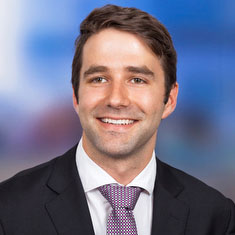
Cedric Hodges
Director, Access Economics, Deloitte
Cedric Hodges has led the national Deloitte Access Economics’ computable general equilibrium (CGE) modeling team for five years delivering over 300 projects, including many on tax analysis and fiscal policy where he has over a decade of experience having built a stylized CGE model with endogenous technical change as part of his 2009 honors thesis before working in the modeling team of Commonwealth Treasury for more than five years. As part of the Commonwealth Treasury team, he helped develop their in-house CGE model, and delivered the modelling of government climate change policy (a carbon price). He has co-authored conference papers and presented at academic conferences on the topic of regional economic impact modelling.
He was a lead author in Deloitte’s recent thought leadership A new choice: Australia’s climate for growth. In addition to his work with Deloitte and the Treasury, Cedric is currently completing academic research in the area, analyzing the potential impacts of a global and national transition to net-zero on Australia’s thermal coal industry and the regions where it is concentrated.

Jesse Jenkins
Assistant Professor of Mechanical and Aerospace Engineering and the Andlinger Center for Energy and the Environment, Princeton University
Jesse Jenkins is a macro-scale energy systems engineer with a focus on the rapidly evolving electricity sector, including the transition to zero-carbon resources, the proliferation of distributed energy resources, and the role of electricity in economy-wide decarbonization. He leads the Princeton ZERO Lab – the Zero carbon Energy systems Research and Optimization Laboratory — which focuses on improving and applying optimization-based energy systems models to evaluate low-carbon energy technologies and generate insights to guide policy and planning decisions in national and sub-national jurisdictions transitioning to net-zero emissions energy systems. He is also affiliated faculty of the Center for Policy Research in Energy and Environment at the Princeton School of Public and International Affairs and associated faculty of the High Meadows Environmental Institute.
Jenkins earned a Ph.D. and SM from MIT, worked previously as a postdoctoral fellow at the Harvard Kennedy School and as a research fellow at Argonne National Laboratory, and spent six years as an energy and climate policy analyst prior to embarking on his academic career. He is a co-PI of the Princeton Net-Zero America study and a member of the National Academies of Science, Engineering and Medicine “Committee on Accelerating Decarbonization in the United States.” He consults regularly on policy design and technical analysis for national environmental organizations and provides actionable insights for companies developing novel clean energy technologies.

Eric Larson
Senior Research Engineer, Energy Systems Analysis Group, Andlinger Center for Energy and the Environment, Princeton University
Larson heads the Andlinger Center’s Energy Systems Analysis Group. He also has affiliations with the Center for Policy Research on Energy and Environment in the School of Public and International Affairs and the High Meadows Environmental Institute. He holds an appointment as a senior scientist with Climate Central. He co-leads Princeton’s Net-Zero America project and is active in other Rapid Switch projects. Originally trained in mechanical engineering, his research intersects engineering, environmental science, economics, and public policy. His research aims to identify sustainable, engineering-based solutions to major energy-related problems, especially climate change, and to inform public policy and private-sector decision making. He has done extensive work on the design and assessment of advanced systems for the production of clean transportation fuels and electricity from biomass and fossil fuels with CO2 capture and storage, among other topics. He holds a BSE from Washington University (St. Louis) and a Ph.D. from the University of Minnesota (Minneapolis).

Erin Mayfield
Postdoctoral Research Associate, Andlinger Center for Energy and the Environment and the High Meadows Environmental Institute, Princeton University
Erin Mayfield is a sustainable systems engineering and public policy researcher, and her research focuses on developing multi-objective computational models that integrate technoeconomic, environmental, and socioeconomic objectives to inform energy and industrial infrastructure system transitions in the context of climate change. She previously worked as an environmental engineer on natural resource damages litigation related to the Deepwater Horizon oil spill, hazardous waste remediation, and ecosystem services valuation related to petrochemical and pesticide contamination. Mayfield has also held positions at the U.S. Environmental Protection Agency, U.S. Congress, and Environmental Law Institute. She received a bachelor’s degree in environmental science from Rutgers University, master’s degree in environmental engineering from Johns Hopkins University, and Ph.D. in engineering and public policy from Carnegie Mellon University.

Bryan Mignone
Corporate Strategic Research, ExxonMobil Research and Engineering Company
Bryan Mignone is a member of the technical staff in Corporate Strategic Research at ExxonMobil and currently serves as global climate change program leader. His research interests include climate impacts valuation, technology assessment, energy transition scenarios, and the economics of climate policy. Mignone has led research programs and served as a climate and energy advisor for more than a decade across the public and private sectors. From 2009 until 2015, he was senior policy advisor and then director of the Office of Climate & Environmental Analysis at the U.S. Department of Energy (DOE). Earlier in his career, Mignone served on the staff of the U.S. Senate Committee on Energy and Natural Resources, where he helped to develop climate legislation considered in the 110th Congress. He was also previously a fellow at the Brookings Institution and served as the first research director of the Brookings Energy Security Initiative. Across multiple roles, Mignone has actively supported earth and energy systems modeling, as well as integrated assessment modeling, to inform decision making. Using such approaches, he has co-authored over two dozen peer-reviewed articles on climate change science, impacts, and mitigation. Mignone was awarded a Ph.D. in geosciences from Princeton University, a certificate in science, technology and environmental policy from the Princeton School of Public and International Affairs, and a B.A. in physics and philosophy from Cornell University.
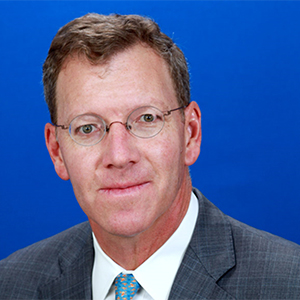
Stuart Murray
Managing Director, Americas Head, Project and Infrastructure Finance, Citigroup Global Markets, Inc.
Stuart Murray is a Managing Director in Citigroup’s Capital Markets Origination division and acts as Americas Head for Citi’s Power & Energy Project Finance franchise. Prior to joining Citi’s Project & Infrastructure Finance group, Stuart was a banker in Citi’s Power & Utilities group, managing a portfolio of North American power & utility clients. Prior to joining Citi, Stuart was the Director of Corporate Finance at The AES Corporation, the global independent power producer based in Arlington, Virginia. Before joining AES, Stuart was a Vice President in Leveraged Finance at JPMorgan Chase & Co., working out of JPMorgan’s New York and London offices where he executed non-investment-grade financings in the leveraged loan and high yield bond markets. Stuart received a BA from Hamilton College in Clinton, New York and an MBA from the Tuck School at Dartmouth College, where he was named an Edward Tuck Scholar. Stuart is Series 7 and Series 24 licensed.
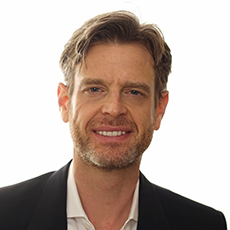
Chris Pereira
Chief Risk Officer and Vice President, Strategy, General Electric Company
Chris Pereira serves as General Electric Company’s Chief Risk Officer and Vice President, Strategy. In this role, Pereira is responsible for evaluating risk and opportunities across the enterprise and establishing company-level governance frameworks and operational initiatives for strategy and risk.
Pereira joined GE in 2007 as senior corporate, securities and finance counsel. He went on to become vice president, deputy general counsel and corporate secretary, GE Capital, where he oversaw Board Risk Committee governance for GE Capital during Federal Reserve oversight; vice president, general counsel, Business Innovations, in which role he oversaw the global law and policy teams for GE Current, GE Lighting, GE Ventures and GE Shared Services; vice president, chief corporate, securities and finance counsel, General Electric Company, responsible for global securities law, board governance, corporate finance, corporate law and antitrust; and vice president, chief risk officer and chief corporate counsel, General Electric Company, in which role he assumed additional responsibility for GE’s overall risk governance and operationalizing the company-level risk oversight and governance framework.
Pereira joined GE from Exelixis, a California biotech company, where he served as vice president of legal affairs and corporate secretary. Prior to that he practiced law at Sullivan & Cromwell in New York and Palo Alto. Pereira is a CFA charter holder and holds law degrees from the University of Chicago and the University of Vienna, Austria. He is also an adjunct professor at Columbia Law School.
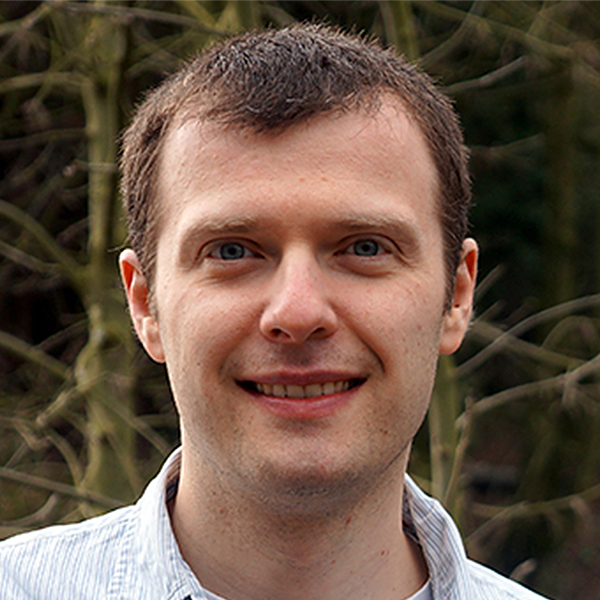
Barry Rand
Associate Director for External Partnerships; Associate Professor of Electrical and Computer Engineering and the Andlinger Center for Energy and the Environment, Princeton University
Barry Rand joined the Princeton University faculty in 2013 holding a joint appointment in in the Department of Electrical Engineering and the Andlinger Center for Energy and the Environment, and is currently an associate professor. Rand’s research interests highlight the border between electrical engineering, materials science, chemistry, and applied physics, covering electronic and optoelectronic thin-films and devices. He has authored approximately 140 refereed journal publications and holds 22 issued U.S. patents. He has received several awards and accolades, including the 3M Nontenured Faculty Award (2014), DuPont Young Professor Award (2015), DARPA Young Faculty Award (2015), and ONR Young Investigator Program Award (2016).
Rand earned a B.E. in electrical engineering from The Cooper Union in 2001 and received M.A. and Ph.D. degrees in electrical engineering from Princeton University. From 2007 to 2013, he was at imec in Leuven, Belgium, ultimately as a principal scientist, researching the understanding, optimization, and manufacturability of thin-film solar cells.

Geeta Thakorlal
President, Energy Transition and Digital, Worley
Geeta Thakorlal is the president of digital and energy transition at Worley, a global provider of professional services and asset solutions for the energy, chemical and resources sectors.
Prior to this role, Geeta held various positions across Worley after joining in 2011, including her last role as president of Intecsea, the group’s global specialist in the offshore deepwater division, focussed on improving business performance, implementing enabling technologies to deliver higher returns and driving collaboration and closer alignment with the parent company. Her other roles as senior vice president for Advisian, Worley’s global advisory and consulting group, including standing up the global Upstream, Midstream, LNG consulting service lines for the group.

